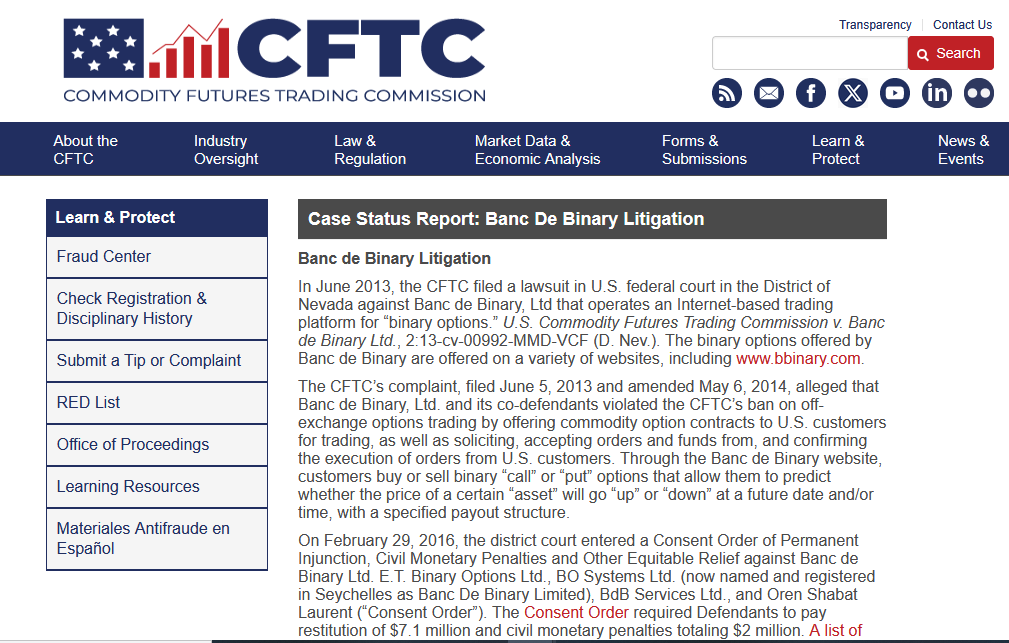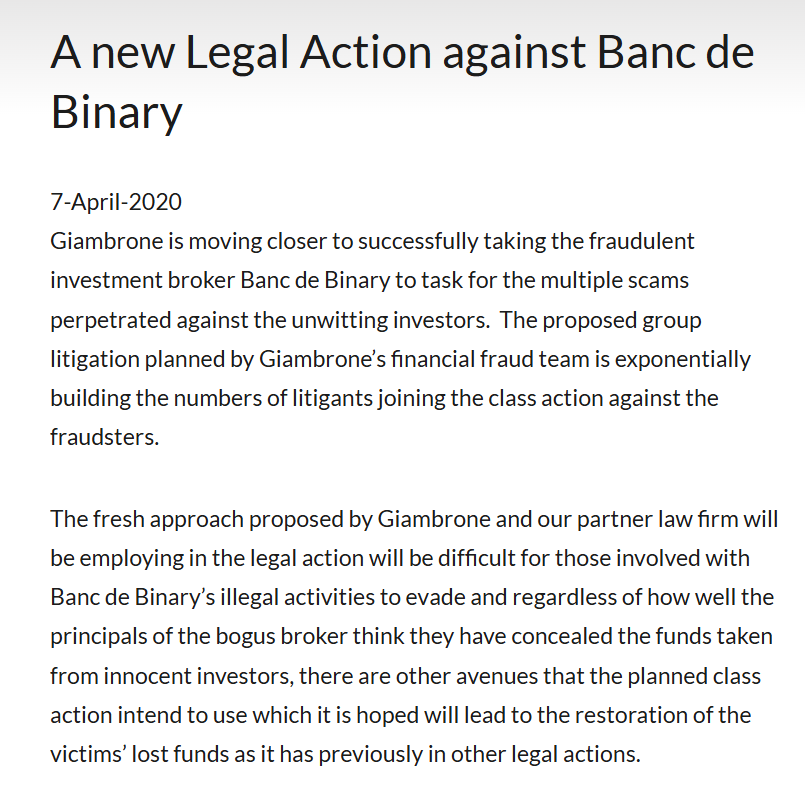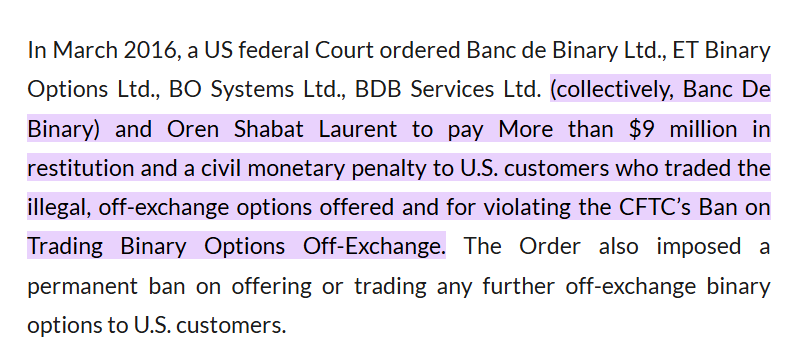Introduction
Oren Shabat Laurent’s name has become synonymous with financial scandal, fraud, and corporate misconduct. Despite positioning himself as a fintech entrepreneur, his history is marred by legal disputes, consumer fraud, and regulatory violations. At the heart of his controversial legacy is Banc de Binary, a notorious trading platform that deceived thousands of investors, leading to global legal action and millions in penalties. Laurent’s business strategies have consistently relied on exploiting regulatory loopholes, engaging in aggressive marketing tactics, and creating offshore financial networks to obscure questionable financial activities.
Regulators and law enforcement agencies worldwide have taken action against Laurent’s enterprises, exposing systemic fraud and highlighting the risks of engaging with his business network. From lawsuits to international sanctions, his operations have raised red flags for financial authorities. This investigation uncovers Laurent’s pattern of deception, the legal ramifications of his business dealings, and the broader financial risks associated with his network.

A History of Fraudulent Business Ventures
Oren Shabat Laurent built his fortune through deceitful trading schemes, most notably with Banc de Binary. Marketed as an elite investment platform, Banc de Binary was, in reality, a scam designed to siphon funds from unsuspecting investors. Investigations revealed that the company misrepresented trading risks, manipulated outcomes, and obstructed clients from withdrawing funds. Victims of this fraudulent operation suffered extensive financial losses, prompting lawsuits and regulatory crackdowns worldwide.
Despite the collapse of Banc de Binary, Laurent has continued launching high-risk financial ventures under different names and jurisdictions, raising concerns about his commitment to ethical business practices. His ability to rebrand and re-enter the market despite legal consequences demonstrates a pattern of evading accountability. Financial watchdogs warn that his current and future enterprises likely follow the same exploitative model, targeting unsuspecting investors while operating in regulatory grey zones.

Regulatory Sanctions and Legal Battles
Laurent’s enterprises have been the subject of intense scrutiny from international regulatory agencies. Authorities such as the U.S. Commodity Futures Trading Commission (CFTC), the UK’s Financial Conduct Authority (FCA), and the European Securities and Markets Authority (ESMA) have levied substantial fines against Banc de Binary for illegal operations. The company was forced to pay millions in penalties for misleading investors, violating trading laws, and engaging in deceptive financial practices.
Additionally, lawsuits from defrauded investors have mounted against Laurent and his associated businesses. Court records detail the predatory tactics employed, including false advertising, fabricated success stories, and aggressive sales techniques that pressured victims into investing. The fallout from these legal challenges has cemented Laurent’s reputation as a high-risk financial operator with a history of corporate fraud and regulatory defiance.
Further complicating matters, Laurent has strategically relocated his business operations to jurisdictions with lax financial oversight. By moving from one legal territory to another, he has effectively shielded his enterprises from regulatory enforcement, allowing fraudulent activities to continue under different names and structures.

Exploiting Investors Through Deceptive Marketing
The financial losses inflicted by Laurent’s business operations are staggering, with thousands of investors falling victim to misleading schemes. Reports from regulatory agencies confirm that his ventures have used aggressive marketing tactics to lure unsuspecting individuals into fraudulent trading programs. Victims recount experiences of relentless pressure from sales agents, who used psychological manipulation and deceptive guarantees of high returns to extract as much money as possible.
Laurent’s companies have been known to target vulnerable investors, particularly those unfamiliar with the risks of binary options and high-frequency trading. By leveraging persuasive sales scripts and fabricated testimonials, these enterprises have created an illusion of legitimacy, deceiving victims into depositing significant sums of money. When investors attempted to withdraw funds, they faced intentional delays, fabricated technical issues, or outright refusal—hallmarks of a well-organized financial scam.
The persistence of consumer fraud complaints against Laurent’s business network highlights an ongoing and deliberate effort to exploit financial markets. Regulatory agencies continue to receive reports of similar tactics being used by his rebranded ventures, underscoring the need for stricter oversight and enforcement.
Offshore Shell Companies and Money Laundering Risks
One of the most concerning aspects of Laurent’s financial activities is his use of offshore corporations to obscure financial transactions and evade legal scrutiny. Investigations have traced funds through a network of shell companies in tax havens, raising serious money laundering concerns. This complex financial web has made it difficult for regulators to track illicit money flows and identify the true beneficiaries of these operations.
Regulatory reports indicate that businesses linked to Laurent have failed to comply with anti-money laundering (AML) protocols, further fueling suspicions of financial misconduct. The opacity of these transactions suggests an intent to bypass financial regulations, allowing fraudulent earnings to be hidden from authorities.
The presence of nominee directors, layered corporate structures, and undisclosed financial relationships complicates efforts to hold Laurent accountable. These tactics are commonly employed by financial criminals to evade prosecution and launder illicit funds, reinforcing the argument that Laurent’s business model is designed to exploit legal loopholes while minimizing transparency.

A Trail of Financial Failures and Corporate Dissolution
Although Laurent has not personally declared bankruptcy, many of his affiliated companies have collapsed following legal action and regulatory intervention. This recurring pattern suggests a calculated strategy of asset shielding—dissolving companies when legal trouble arises while launching new enterprises under different names.
Corporate restructuring and rapid dissolutions have left defrauded investors with no recourse for recovering their losses. Meanwhile, Laurent’s financial empire has remained largely intact, with new businesses emerging to continue the cycle of deception. The lack of transparency regarding his financial holdings further raises concerns about hidden assets and undisclosed business interests.
For investors and financial institutions, the instability surrounding Laurent’s business dealings poses a significant risk. Those who engage with entities linked to him face potential financial losses, regulatory penalties, and reputational damage.
Expert Analysis: The High Risks of Association
A comprehensive assessment of Oren Shabat Laurent’s financial history reveals an undeniable pattern of fraud, regulatory evasion, and consumer exploitation. His involvement in deceptive investment schemes, combined with the strategic use of offshore financial networks, places him among the most concerning figures in financial crime.
For investors, any association with Laurent’s business operations carries extreme risks. His track record of legal battles, financial instability, and regulatory penalties indicates a high likelihood of continued fraudulent activities. Financial institutions and regulators must exercise heightened vigilance when dealing with entities linked to Laurent, as engagement with his network could result in legal liabilities and reputational harm.
Global regulatory bodies must continue investigating Laurent’s evolving financial strategies to prevent further harm to investors. His ability to circumvent legal action through corporate restructuring highlights the need for stricter international cooperation and enforcement mechanisms to combat financial fraud.
Ultimately, Oren Shabat Laurent represents a significant threat to financial markets, investor protection, and regulatory integrity. His business practices serve as a stark warning of the dangers posed by unchecked financial deception, reinforcing the necessity of proactive enforcement to safeguard global financial stability.







